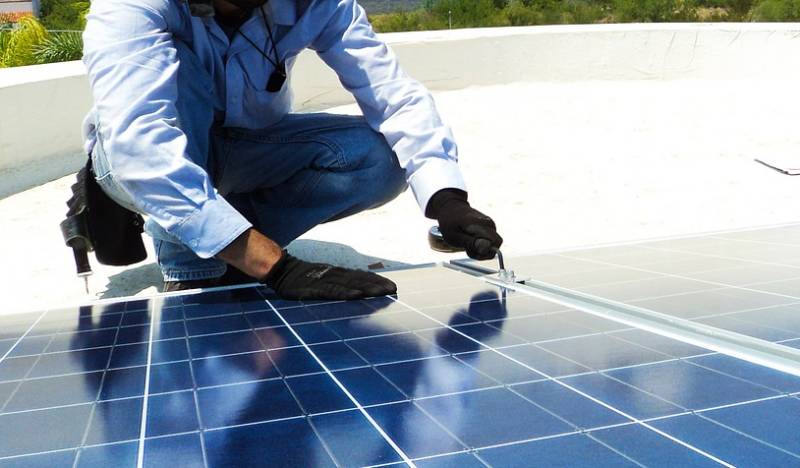
Image: chrischesneau
Stakeholders and the public are encouraged to provide feedback a new industry code of conduct being developed to help further protect Australian purchasers of PV and battery systems, along with other “behind-the-meter” products.
Behind-the-meter refers to technologies, equipment and software involved with the generation and use of energy on-site – for example solar panels installed on the rooftop of a home or business. Uptake of BTM products has been phenomenal, as evidenced by the installation of more than 2 million solar power systems across the country.
In 2017, the COAG Energy Council requested a Code of Conduct be developed related to the sale and installation of all distributed energy products such as solar power systems, solar batteries and energy management devices and software. The Behind-the-Meter Working Group (BTMWG) was subsequently formed, which consists of the following organisations:
- Australian Energy Council
- Clean Energy Council
- Consumer Action Law Centre
- Energy Consumers Australia
- Energy Networks Australia
- Public Interest Advocacy Centre
- Renew
- Smart Energy Council
The BTMWG has since developed a draft industry-wide code of conduct for sellers of distributed energy resource products called the Behind-the-Meter Industry Code. The draft was released late last year.
The BTM Industry Code covers a number of areas:
- Pre-sale: a commitment to ensuring promotional material is clear, accurate and relevant, and that sales and quoting practices are responsible.
- Sale: fit- for- purpose products, systems and services. Clear contracts and timeframes.
- Payment and finance: outlines responsibilities where the merchant assists in arranging finance.
- Post-sale and installation: ensuring all necessary information is provided and responsibility for work taken.
- Complaint-handling and warranty: responding to complaints in a timely and appropriate fashion and honouring of warranties.
- Business management: compliance with existing legislation, regulations, Australian Standards and practices required under the code.
- Administration: compliance with any reasonable requests made by the Behind-the-Meter Industry Code’s Administrator or the Panel.
The full draft BTM Industry Code can be downloaded here (PDF).
Stakeholder consultation forums in Adelaide, Brisbane, Sydney and Melbourne have already occurred, with more to be held in Melbourne and Brisbane this month .
Feedback on the draft BTM Industry Code can also be submitted to [email protected] by Wednesday 6 February 2019. The general public as well as stakeholders are invited to contribute their views.
Once the feedback period has ended and submissions reviewed, the Code will be revised. The final version will then be submitted to the Australian Competition and Consumer Commission (ACCC) for authorisation.
The BTMWG is also working on governance aspects, which includes a body that will oversee the Code’s promotion, development, resourcing and appointment of a Code Administrator. Participation in the code will be voluntary (proposed cost unknown at this point), but as with the CEC’s Approved Solar Retailer program, it could possibly become a prerequisite for participation in some programs, so it’s important for all involved to have their say.

 RSS - Posts
RSS - Posts



So, we are given only three weeks, to download and read the proposed code of conduct, and, make submissions about it?
Hmm.
It could be helpful, if we would have reasonably continuous Internet access (one night last week, I had to manually reconnect, about every 15-20 seconds, for a download speed of up to 100 bytes (yes, folks – bytes, not kilobytes, and, not megabytes) per second, on a “100MBps” connection). But then, we are regarded as a remote community, here in WA, where telecommunications are unstable.
And, of the public, who do not see this blog; “Tough bikkies!”?
The draft “Code of Conduct” is still completely inadequate, especially regarding the lack of any warranty coverage for when the business that sells and/or installs a system, no longer exists in Australia, when the system or its components fail, or, when the manufacturers of the components, do not have a legally liable presence in Australia, when the components fail.
In this regard, it is no better than no “Code of Conduct”.
I realise that consumer protection (which has been eliminated in WA, due to the “cost cutting” of the current state government) in Australia, is woefully lacking, and, encouraging of phoenix companies and other frauds by businesses, but, if the domestic rooftop photovoltaic systems industry in Australia, wants to become reputable, it should mandatorily provide some sort of warranty protection insurance, to provide for warranty coverage when suppliers/installers/retailers no longer exist in their initially legally liable form, and, for when the components manufacturers do not have a legally liable presence in Australia, that could be ordered to honour components warranties.
If the warranties can be not honoured, then, the warranties are not worth anything, and this draft “Code of Conduct”, does nothing to remedy this shortfalling of the industry.
Hi Bret it seem that consumer protection WA is alive and well phone no 1300 304 054 works OK today
Not just the suppliers of the systems,but the energy providers should also be sorted out big time.
I have spent so much time on the phone to Origin Energy,which drags its heels and uses every excuse and pretext to delay and prevaricate.
Jim Dixon – isn’t that to which you referred, the Department of Coal Mines and Petroleum?
In the elimination of various government services and departments, in the cutbacks of the current WA state government, what was the consumer protection part of the “Department of Commerce” (WA once had a Department of Consumer Protection, but the state parliament decided that the people of WA are not entitled to have consumer protection, like we are not entitled to human rights), was inserted into the bowels of the Department of Coal Mines and Petroleum – “out of sight, out of mind”.
And so, in the absence of consumer protection, the photovoltaic equipment supply and installation industry in WA, is not very reputable, and, practices are significantly wanting, in integrity.